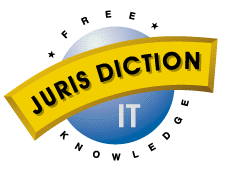 Indemnification:
Indemnification:
Assumption of Risk
copyright 1997 Donald M. Cameron , Aird & Berlis
Related Topics:
- Warranties of Title
- Limitations of Liability
If the Licensor's warranty of title or authority is wrong, then the Licensee risks exposure to one of the greatest terrors of the late twentieth century - intellectual property litigation.
Litigation can arise where the use of a computer program infringes the intellectual property rights of others without any deliberate intent by the Licensor or Licensee (such as in the case of patent infringement). The multi-million dollar questions are: Who shall assume the risk? Who shall pay the damages? Who will pay to fix the problem?
Since the Licensor is providing the technology and is making money from the transaction, Licensees will insist upon the Licensor indemnifying them against such risks, or at least over which the Licensor has control. The risks over which the Licensor has control and over which the Licensee has none include breach of contract including trade secret obligations, trade mark infringement and copyright infringement.
Unless the Licensor has knowledge of an existing patent, neither the Licensor nor the Licensee may have any forewarning of an action for patent infringement. It is a matter of bargaining as to who assumes the risk of patent infringement.
The Licensor shall indemnify the Licensee against any action brought against it by a third party for copyright infringement, patent infringement, misappropriation of trade secrets, trade mark infringement or breach of contract.
If the Licensee has modified the software, and the modification is the cause of the problem, the Licensor should be excluded from liability.
The Licensor not liable for anything due to modifications made to the computer program by the Licensee or for non-compliance by the Licensee with this agreement.
If any litigation is commenced against the Licensee the Licensor, as the person paying the costs of it, would want to control the litigation by taking carriage of it and making decisions with respect to settlement. The Licensee should promptly notify the Licensor of the commencement of any lawsuit.
The Licensee shall promptly notify the Licensor of any threatened or commenced litigation relating to the use of the computer program. The Licensor shall have carriage of any such action brought against the Licensee including the right of choice of counsel. The Licensor shall pay for all out-of-pocket expenses of the Licensee surrounding such litigation. The Licensee shall assist the Licensor in the conduct of the litigation. The Licensor agrees to pay any damages, profits or other monies for which the Licensee is held to be required to pay to the third party.
The Licensee will want to have the right to approve any settlement which affects the way it carries on its business. The Licensee will want to be put in the position it would have been in if the alleged infringement had never happened.
If the use of the computer program is prohibited by court order, the Licensor shall either:
replace the computer program with a non-infringing version of the software or with non-infringing software and will transport the Licence data to such program as necessary;
obtain a licence for the use of the computer program from the third party or;
return the Licence Fee to the Licensee.
Return to:
Cameron's IT Law : Home Page ; Index
Cameron's Canadian Patent & Trade Secrets Law : Home Page ; Index